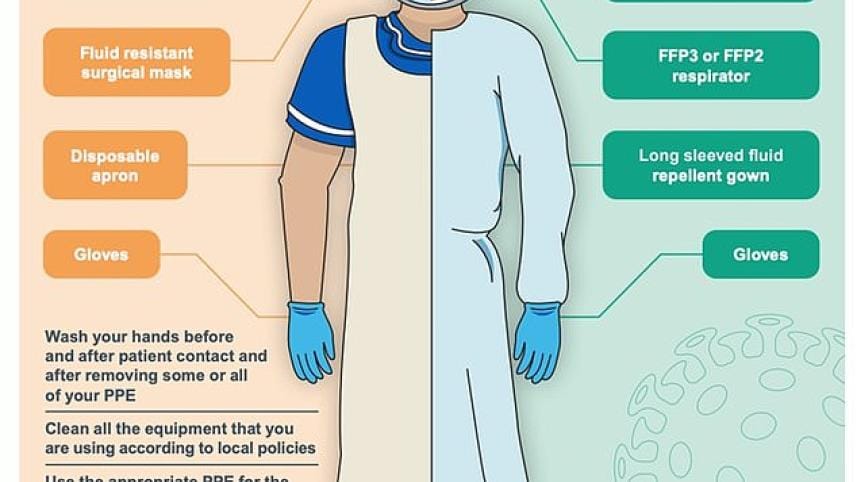Notes from a frontline healthcare worker in the UK

I continue to battle with Covid-19 patients in the Intensive Care Unit (ICU). Today is day 44, 7 weeks since we had admitted the first Covid patient in the ICU. Our ICU is full of Covid patients and now we are ventilating patients in the operation theatre. The professional work is not a burden to us. It feels like we have become mentally and physically exhausted and we are all on an emotional rollercoaster with this crisis.
Increasing number of National Health Service (NHS) frontline healthcare workers are losing their lives. More than 100 healthcare workers have died in the UK. Among them 11 were doctors, unfortunately all of them were from Black Minority Ethnic (BME) community. They contracted the virus in their workplace. This reflects the risks the healthcare workers are taking daily in their professional work. One of the reasons could be the shortage of Personal Protective Equipments (PPE) needed to fight the virus. The number is likely to rise. The British Medical Association Council chair Mr Chaand Nagpaul has called the government for an enquiry into the death of the BME doctors.
I have recently received a phone call from one of my daughter's friend. She is a trainee paediatrician and she contracted the disease while working in the paediatric intensive care unit. Now she is self isolated at home. Her consultant has sent a pulse oximeter to her to monitor the body oxygen and detect hypoxia. The pulse oximeter is no more complicated than using a thermometer. Detecting hypoxia early on would alert her early to the need for hospitalisation. Detection of hypoxia, early treatment and close monitoring apparently worked for the British Prime Minister Boris Johnson. I have read an article recently reported from New York about the "silent hypoxia" in Covid patients. Widespread use of pulse oximeter could provide an early warning system for the breathing problem associated with Covid pneumonia.
On Sunday I received a gift box from the hospital management team distributed to every healthcare worker of the Trust. A number of charity organisations have donated these gift items to the hospital. The gift box contains cornflakes, tea, coffee, sugar, snacks, bottled water, hand tissue and washing powder. Last week a widow came to visit us in our department with four homemade cakes and a hand-written thank you card for us. Unfortunately her husband died in our ICU with Covid three weeks ago. On the top of one cake she wrote "Thank you NHS". In my 28-years career in the UK, I have seen that the British people really love their NHS. The NHS is free for all at the point of delivery with the same standard of care for every citizen. The UK healthcare system is one of the best in the world.
I have mentioned in my earlier report that we don't allow relatives to visit their loved ones in our ICU. We phone them at home twice daily. The relatives also phone the unit whenever they like to. Now we have an iPad with a Jitsi app which will enable us to communicate with patients' families via video conferencing. Hopefully this will improve the family experience and allow us to see who we are speaking to.
I keep an eye on the situation of Covid infection in Bangladesh. As increasing number of tests are being done, more patients are being diagnosed with Covid infection. Unfortunately the number of death in the country is also rising. I can only speculate that the worst is yet to come. I would like to urge the government to take all possible measures to contain the virus. I am glad to see that the government has formed a 17 member "National Technical Advisory Committee" to find ways to improve the coronavirus health services. I personally congratulate the government for this endeavour.
There is a race throughout the world to find a vaccine or a treatment for this disease. The world scientific community including Britain, China, Japan and USA are working round the clock to discover a vaccine. Hopefully an effective vaccine will be available by the end of this year or early next year. I would like to propose that Bangladesh government should also come forward and actively engage our scientists to find a vaccine or a treatment for this infection. One option could be to form a "national commission" consisting of experts from across the country including experts from public health, virology, microbiology, medicine, biochemistry, biology, pharmacy and pharmacology. The Institute of Epidemiology Disease Control & Research (IEDCR) could act as the nucleus of this research project.
Finally, I believe that in addition to the lockdown measures, we need to provide food and temporary shelter to the affected population in the community to contain the virus in Bangladesh. We could have followed the Kerala, Vietnam or Nepal model, where they have so far contained the virus successfully.
Md Salimuzzaman Bhuiyan is general secretary, Bangladesh Medical Society in the UK. Email: mszaman57@yahoo.co.uk



 For all latest news, follow The Daily Star's Google News channel.
For all latest news, follow The Daily Star's Google News channel.
Comments